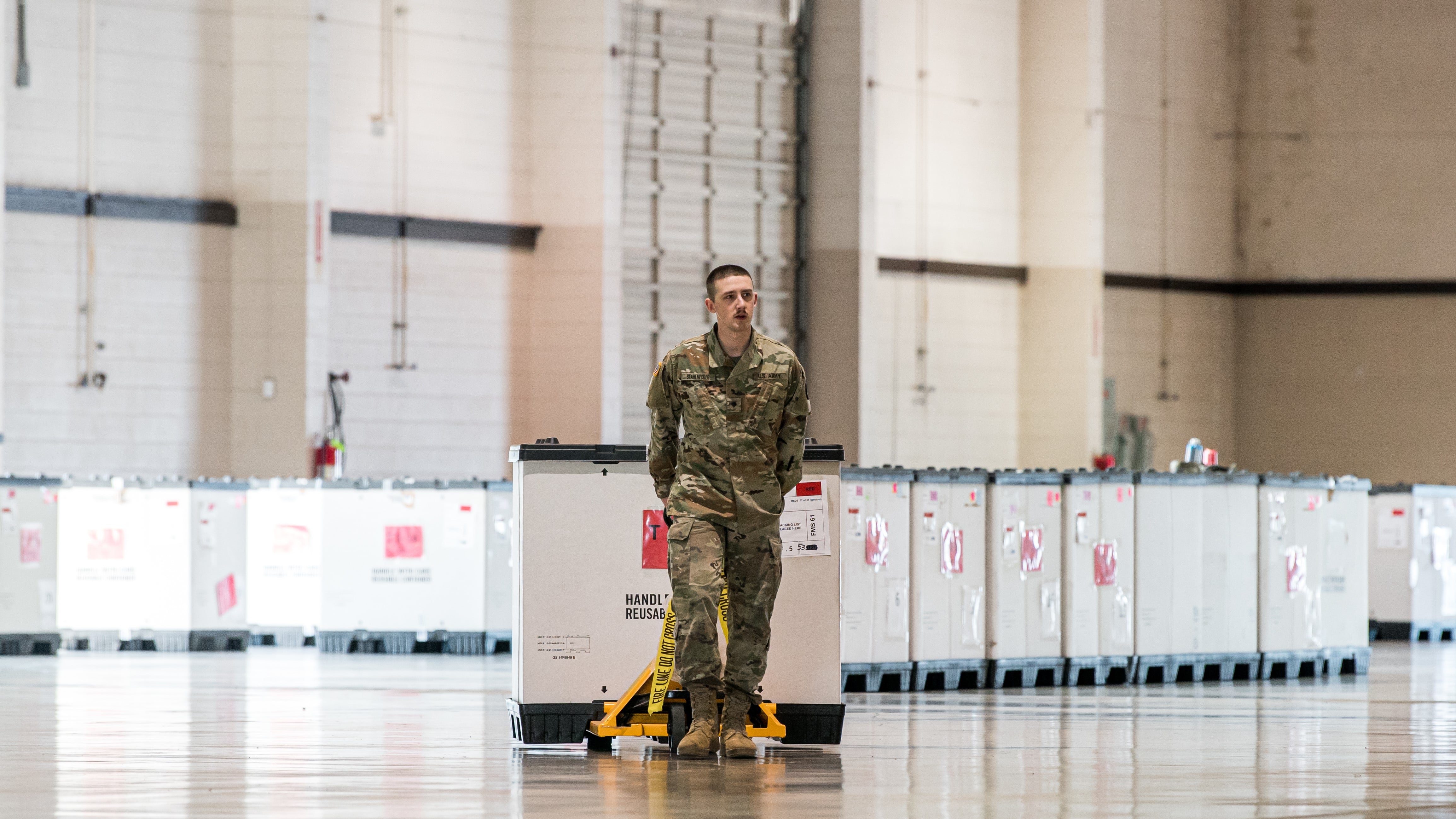If the new coronavirus pandemic has taught us one thing, it is that we need to rethink what we need to do to keep America safe. That’s why Secretary of Defense Mark Esper’s recent tweet calling modernization of U.S. nuclear forces a “top priority ... to protect the American people and our allies” seemed so tone deaf.
COVID-19 has already killed more Americans than died in the 9/11 attacks and the Iraq and Afghan wars combined, with projections of many more to come. The pandemic underscores the need for a systematic, sustainable, long-term investment in public health resources, from protective equipment, to ventilators and hospital beds, to research and planning resources needed to deal with future outbreaks of disease.
As Kori Schake, the director of foreign and defense policy studies at the American Enterprise Institute, has noted: “We’re going to see enormous downward pressure on defense spending because of other urgent American national needs like health care.” And that’s as it should be, given the relative dangers posed by outbreaks of disease and climate change relative to traditional military challenges.
RELATED

The U.S. nuclear arsenal is particularly ripe for a fresh look. Organizations such as the Arms Control Association and Global Zero have crafted plans that could save hundreds of billions of dollars over the next three decades while maintaining a robust nuclear deterrent. The Global Zero plan is particularly notable in that it calls for the elimination of the intercontinental ballistic missile leg of the nuclear triad, which former Secretary of Defense William Perry has described as “some of the most dangerous weapons in the world.”
ICBMs are dangerous because of the short decision time a president would have to decide whether to launch them in a crisis to avoid having them wiped out in a perceived first strike — a matter of minutes. This reality greatly increases the prospect of an accidental nuclear war based on a false warning of attack. This is a completely unnecessary risk given that the other two legs of the nuclear triad — ballistic missile submarines and nuclear-armed bombers — are more than sufficient to deter a nuclear attack, or to retaliate, should the unlikely scenario of a nuclear attack on the United States occur.
Restructuring the U.S. nuclear arsenal would open the way to invest substantial sums the Centers for Disease Control and Prevention, state and local public health agencies, and the World Health Organization, which will be on the front lines in preventing or mitigating any future mass outbreak of disease. In the long-term, over the next three decades, buying and maintaining new nuclear-armed missiles, submarines, bombers, and warheads could cost an astonishing $1.5 to $2 trillion. And President Donald Trump’s latest budget proposal, released earlier this year, called for an increase of nearly 20% in spending on nuclear weapons while cutting funds for the CDC, WHO, and other public health agencies.
Eliminating ICBMs and reducing the size of the U.S. arsenal will face strong opposition in Washington, both from strategists who maintain that the nuclear triad should be sacrosanct, and from special interests that benefit from excess spending on nuclear weapons. The Senate ICBM Coalition, composed of senators from states with ICBM bases or substantial ICBM development and maintenance work, has been particularly effective in fending any changes in ICBM policy, from reducing the size of the force to merely studying alternatives, whether those alternatives are implemented or not.
Meanwhile, Northrop Grumman — currently the sole bidder for the new ICBM program — has announced that it expects to have hundreds of subcontractors spread throughout the United States for its work on the new system, known formally as the Ground-Based Strategic Deterrent. The company also claims that the next phase of the work could create 10,000 jobs. That’s a tiny fraction of national employment but will pack a political punch among members of Congress whose states or districts benefit from ICBM-related employment.
Now is the time to reduce our bloated nuclear arsenal and invest in more urgent security priorities. Deterrence can be sustained at lower levels of spending, but a robust public health system needs considerably more resources. It’s a trade-off that can and should be made.
William D. Hartung is the director of the Arms and Security Project at the Center for International Policy.








